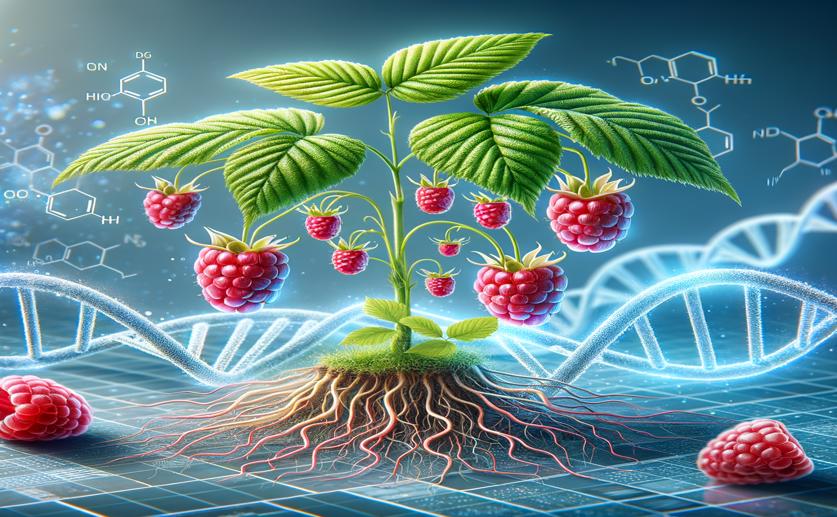
New Gene for Raspberry Ketone Production Found Through Advanced Genetic Analysis
Jenn Hoskins
23rd August, 2024

Image Source: Natural Science News, 2024
Key Findings
- Researchers at Beijing University of Agriculture studied the genetic basis of raspberry ketone synthesis in two raspberry varieties, "Polka" and "Orange Legend."
- They identified 24,213 single genes and found that genes involved in flavonoid and anthocyanin synthesis increased as the fruit ripened, while genes for lignin synthesis decreased
- A key gene, RinPKS4, was identified as highly related to raspberry ketone synthesis, and its over-expression in raspberry plants increased raspberry ketone content by 42.64%
References
Main Study
1) A new raspberry ketone synthesis gene RinPKS4 identified in Rubus idaeus L. by transcriptome analysis.
Published 22nd August, 2024
https://doi.org/10.1371/journal.pone.0306615
Related Studies
2) Analysis of Wild Raspberries (Rubus idaeus L.): Optimization of the Ultrasonic-Assisted Extraction of Phenolics and a New Insight in Phenolics Bioaccessibility.
3) Red Raspberry (Rubus idaeus L.) Seed Oil: A Review.
4) A chromosome-level genome sequence assembly of the red raspberry (Rubus idaeus L.).



 20th August, 2024 | Greg Howard
20th August, 2024 | Greg Howard